If you’ve already started looking at roofing for your home, you know there are a dizzying number of options.
This can be exciting for a homeowner who knows what they want, but chances are, the process is overwhelming: how do you decide what type of roofing is best both for your home and budget?
We get it. That’s why, at Pacific Exteriors, our mission is to provide clear and transparent information for homeowners like you.
So, let’s get started. What are the differences and pros vs. cons between asphalt shingles and metal roofing? Which one is the best for your needs?
Let’s dive in.
But first, some basics.
What are Asphalt Shingles?
Asphalt shingles are the most common type of roofing across the United States. This is due to their affordability and easy installation. They’re suitable for a wide range of climates and roof slopes. Asphalt shingles also have solid weather resistance, depending on the type you choose.
Just to lay all our cards on the table, here at Pacific Exteriors we are proud to be an Owens Corning Platinum Preferred Contractor. We work with Owens Corning because we believe they’re the best. However, we know they’re not the right fit for every situation and every budget.
What Are the Different Types of Asphalt Shingles?
Asphalt shingles come in three different types called 3-tab, Architectural, and Luxury (or Designer). The main difference between these types is the design, durability, and cost.
- The most basic type is 3-tab shingles. They’re made of a single layer of asphalt, so they’re also the cheapest option in most cases. Since it is thinner, asphalt shingles have a shorter lifespan than other types (15-20 years) and are less durable against the elements. The single layer also doesn’t allow for any dimension, which is less desirable compared to Architectural shingles.
- Architectural shingles are made of layers of asphalt that bond together. This is for stronger weather resistance, longer lifespan (25-30 years), and dimensional design. These shingles are best for storm protection. Architectural shingles also usually have longer manufacturer warranties than 3-tab shingles.
- Luxury, or designer shingles, are made to mimic the design of other more expensive materials such as slate, cedar shake, or tile. Because of their thicker composition, Luxury shingles are usually more expensive, durable, and have a lifespan of 30-50 years.
What Climate Is Best for Asphalt Shingles?
Asphalt shingles are common because they can withstand many climates and conditions. Depending on the type of asphalt shingle you choose, roof durability and lifespan will vary.
Asphalt shingles are best suited for temperate climates. Hot summers and freezing winters reduce the lifespan of asphalt shingles.
3-tab shingles don’t have the best wind or hail resistance, so they’re best suited for climates with few storms. If you live somewhere like the Pacific Northwest, where rain and hailstorms are common, or the Georgia area, where hurricane winds are likely, 3-tab shingles would not be the best choice.
Since architectural shingles do better in storms, they are well suited for high winds, heavy rain, and snow. They can also handle extreme temperatures and fluctuations without cracking or warping.
Designer shingles can withstand storm conditions and humid temperatures like Architectural shingles. Designer shingles also naturally have a longer lifespan due to their thickness. However, Designer shingles (being a premium price compared to Architectural shingles for a similar level of protection) can reduce homeowner interest.
How Much Do Asphalt Shingles Cost?
Comparing cost per square foot, asphalt is far cheaper than metal roofing. Because it is the most popular and common type of roofing within the United States, there are more available contractors who provide asphalt roofing services.
Costs vary when considering the size of your home, roof complexity, structural damage, age of your home, etc. According to internal data from Pacific Exteriors, a new roof for a 2000-square-foot home can cost anywhere between $15,000 and $32,000 dollars.
Factors that can make the price go up or down:
- Roof complexity like multiple roofs and a steep pitch
- Quality of materials
- Quality and quantity of accessories
- Type of shingle
- Warranties and guarantees
And obviously, the size of your home will have a factor in the price—not everyone’s homes will be 2000sqft, like in the example!
Pricing can also vary depending on your contractor. Will your contractor use all the recommended equipment or the bare minimum? Questions like these can ascertain the validity of your contractor, alongside the general cost.
How To Maintain Asphalt Shingles
Asphalt roofing requires more frequent maintenance overall. The process is simple, though: remove debris from your rooftop and gutters. Check to ensure mildew and mold are not growing anywhere on your roof. If there is growth on your roof, assess the damage without pulling off your shingles (that causes more damage). If it seems surface level, spraying anti-mildew or anti-mold cleaning products should work. If it is under the shingles already, contact the closest contractor near you to prevent more problems.
Mildew and mold growth are most common in humid and cool climates, like the Pacific Northwest. By removing any growth or bio-matter from your roof, you ensure that airflow remains consistent.
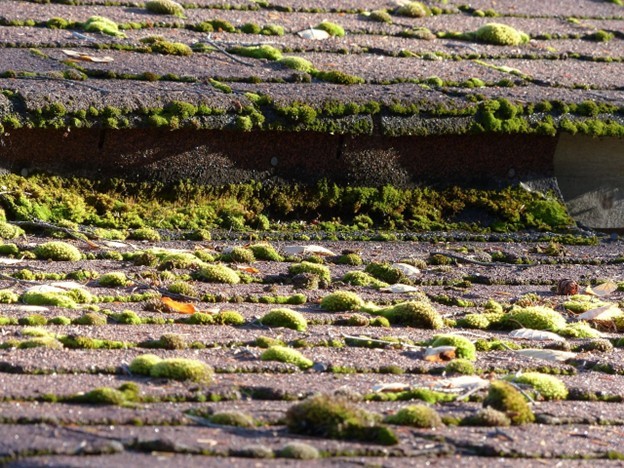
Caption: Never let your roof get this mossy!
What is Metal Roofing?
Metal roofing is an alternative style of roofing to the classic asphalt shingle: by assembling large panels of metal together, homeowners can have a weather-resistant roof that is less prone to damage.
What are the Different Types of Metal Roofing?
There are two main varieties of metal roofing: concealed fastener panels and exposed fastener panels.
- Concealed fastener panels, like the name suggests, have hidden interlocking mechanisms that bind the panels together. This is the most durable, lowest maintenance option. Because the connector is hidden, your roof is less affected by weather, which means less active homeowner maintenance. However, it means that when you need to check on your roof, you are limited to professionals who have a thorough understanding of metal roofing.
- Exposed fastener panels are the opposite. Their connecting elements are more vulnerable to the weather. However, their panels also have more texture options. Where the concealed fastener panels are relatively flat, the exposed fastener panels have more ridges, which you may like.
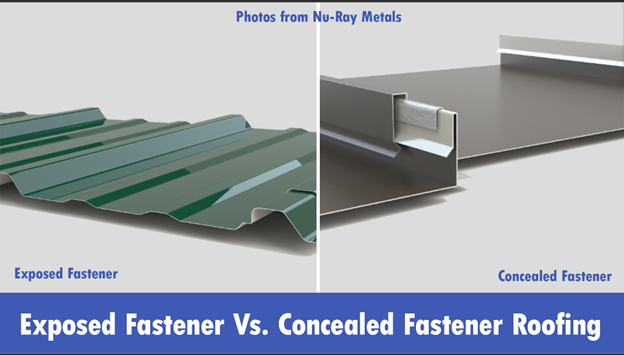
Each of these options can come in many colors and texture options, not to mention the variety of exterior finishes available.
What Climate Is Best for Metal Roofing?
Metal roofing lasts a long time—reported to last up to than three-tab asphalt shingles. In areas affected by more extreme temperatures and windstorms, this significant time advantage should be weighed.
Metal roofing can withstand winds up to 140mph, making it a smart choice for storm-prone regions. The guarantee that your roof will remain after a tornado or hurricane makes it a smart choice for homeowners in windy climates.
How Much Does Metal Roofing Cost?
Metal roofs cost more upfront—up to three times more than an asphalt roof. Metal roofing also takes a longer time to install and set up, as metal roofing requires additional contractor training.
Metal roofing requires a once-every-two-years professional exam, which is an additional cost for metal roofing. Repairs can also be tricky. If the color of your metal roof has gone out of production, there is no way to repair just a part without the difference being obvious from far away.
How to Maintain Metal Roofing
Maintenance for metal roofing is like asphalt shingles, with a twice-a-year check-up. Looking for any structural differences or damage is important. Checking the sealant (protects the seams and metal edges from water damage) and roof coating (repels water and snow) is also necessary.
How to Decide What Roofing is Best for Your Home
Now that you know the differences between asphalt shingles and metal roofing, how do you decide what’s best for your home? Consider these things in your decision process.
Asphalt Shingles vs. Metal Roofing: Climates
Asphalt shingles are better for moist climates with heavy rain and less weather fluctuation. Metal roofing is better for climates that experience many windstorms. It is also better for places with larger temperature fluctuations, as metal roofing is less prone to cracking or melting in snow or summer.
Asphalt Shingles vs. Metal Roofing: Upfront Costs
Metal will cost more upfront than asphalt, up to three times the cost. The exact price range between the two options will depend on each individual home. Pricing factors include the size of your home, roof complexity, structural damage, age of your home, etc.
Asphalt Shingles vs. Metal Roofing: Maintenance
Metal roofing is easier to maintain in the long run, with biennial professional cleanings and examinations. Asphalt shingles require annual cleanings.
Metal roofing has fasteners that, depending on what type of roof you choose, can be inaccessible without proper equipment. Ensuring the professional you hire has the correct knowledge and equipment provides you the longest roofing lifespan.
Asphalt Shingles vs. Metal Roofing: Lifespan
Metal roofing has a lifespan of 50 to 70 years. Asphalt has a lifespan of anywhere from 15 to 25 years. With a reliable asphalt shingle contractor, its lifespan can increase to 30 years.
Asphalt Shingles vs. Metal Roofing: Curb Appeal
Both materials have pros when it comes to curb appeal. However, asphalt shingles are more aesthetically applicable to a wider variety of homes, whereas metal roofing can look out of place.
If your home is a part of an HOA (Homeowners Association), certain materials may be prohibited from your home renovation. Double check the rules of your HOA before deciding on a metal roof.
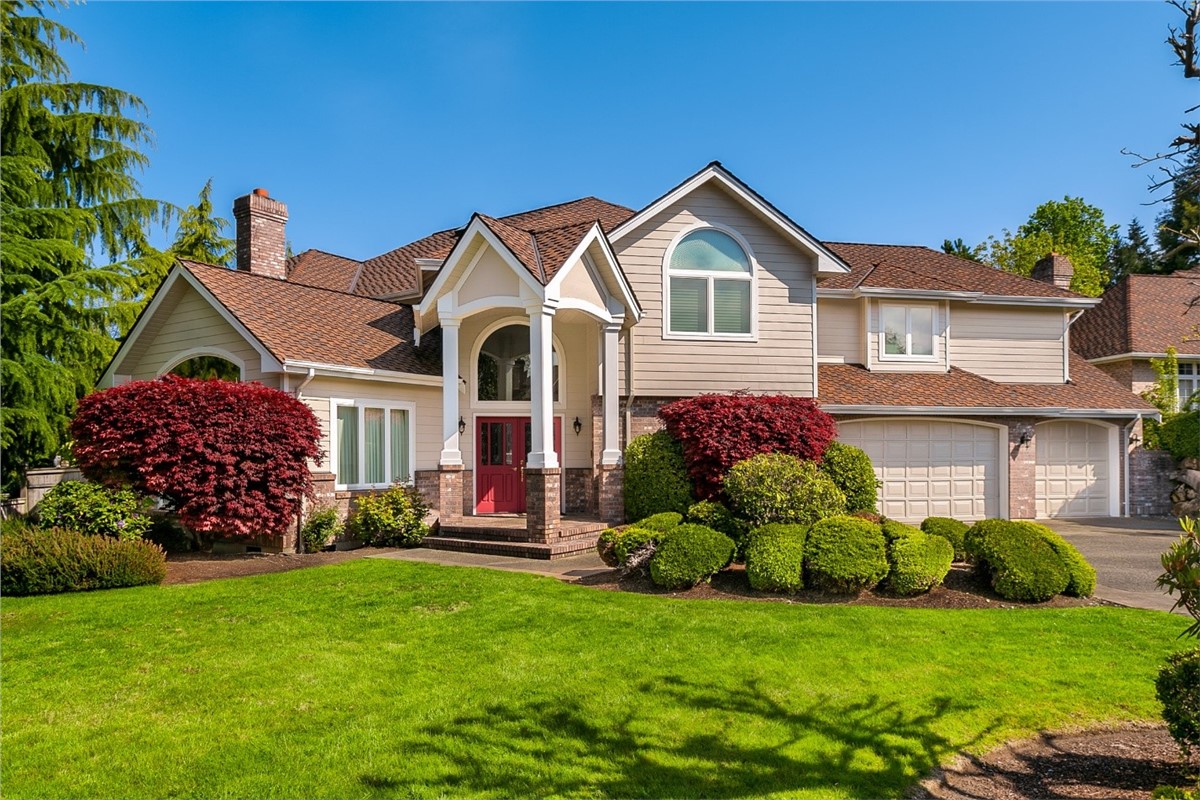
Metal roofing would look odd on a house like this!
Asphalt Shingles vs. Metal Roofing: Sustainability
Metal roofing is far more sustainable than asphalt. Asphalt uses petroleum as an ingredient in its production, whereas metal roofing does not. In addition, Pacific Exteriors’ chosen metal roofing supplier, Nu-Ray Metals, uses “a minimum [of] 25% re-purposed steel”, and their “products are 10% recyclable at the end… unlike other roofing materials which are routinely disposed of in landfills, by the ton” (Nu-Ray Metals).
Some cities and states offer financial incentives to install metal roofing and reduce emissions alongside landfill waste. Additionally, metal roofing comes with built-in attachment systems for solar panels, reducing your energy consumption.
Choosing the perfect roof for your home
There are benefits to both asphalt shingles and metal roofing, but the choice is yours as the homeowner. Evaluating which type of roofing will best suit both your budget, home, and climate lies in research, and preference. Using this article to learn the differences between asphalt shingles vs. metal roofing is just the first step in your exterior renovation journey.
Regardless of whether you decide to go with us or not, Pacific Exteriors aims to educate homeowners about all the options available to them in a traditionally opaque market.
If you’re ready for a new roof in the Seattle, Portland, or Atlanta areas or need more guidance for a new roof, schedule a free estimate and consultation with Pacific Exteriors today!
Subscribe to Pacific Exteriors LLC's Blog



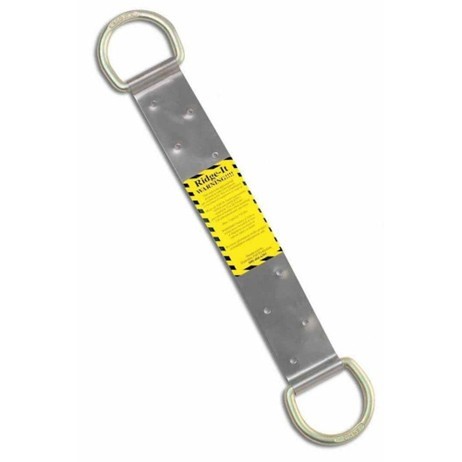
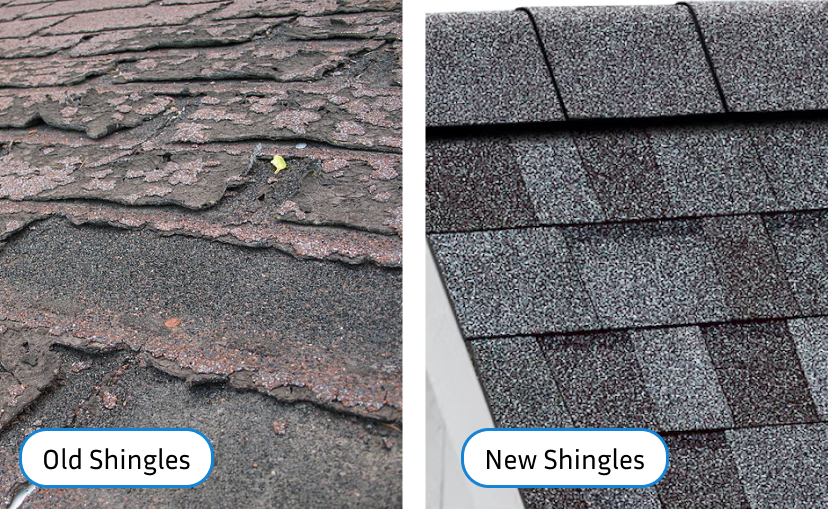
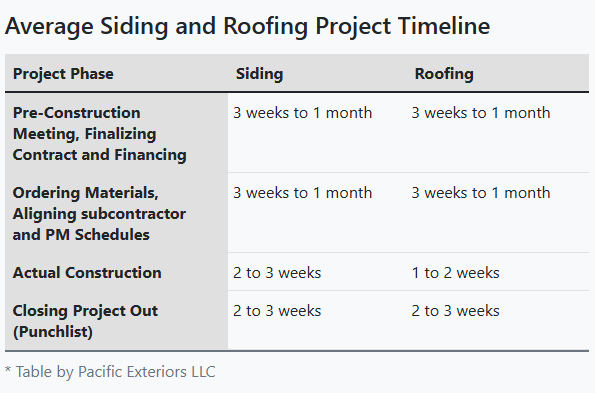
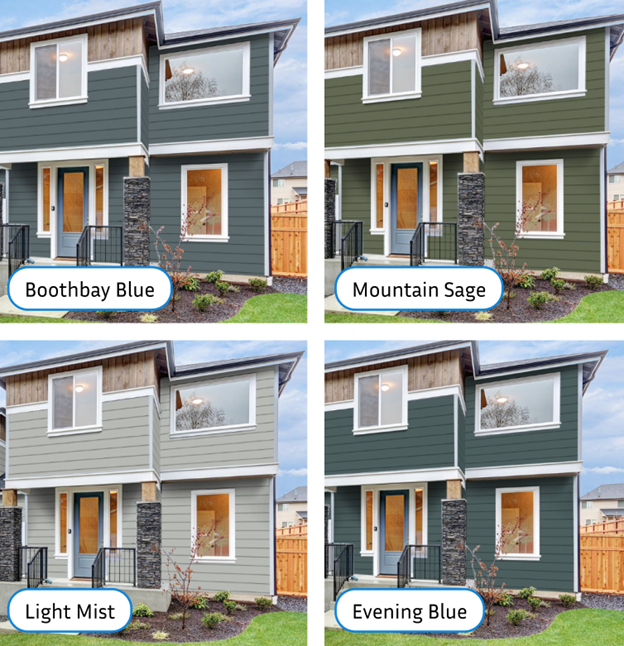

Comments